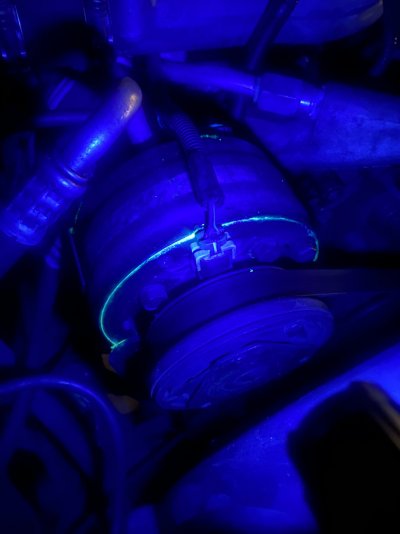Crazyagain
Newbie
I shave a question. Hopefully I’m in the right spot. Hopefully I can post a photo to show what i mean.
I bought my truck recently and the only previous owner put die in the lines. I’m getting green coming out of the outer edge/ seam of the compressor. I have not found anything that shows this as a spot to leak. Not a video that shows anything even close to the area I’m seeing the green as a possible location for a leak.
My second spot I’m seeing it is when I take the cap off the high pressure line. I see a little green and also where it was put in at the low side port. I tried cleaning the area out with a q tip to see it I get more coming out. The charge lasted about 4 days. The second phot has this because I had to change my vacuum pump thanks for any assistance
I bought my truck recently and the only previous owner put die in the lines. I’m getting green coming out of the outer edge/ seam of the compressor. I have not found anything that shows this as a spot to leak. Not a video that shows anything even close to the area I’m seeing the green as a possible location for a leak.
My second spot I’m seeing it is when I take the cap off the high pressure line. I see a little green and also where it was put in at the low side port. I tried cleaning the area out with a q tip to see it I get more coming out. The charge lasted about 4 days. The second phot has this because I had to change my vacuum pump thanks for any assistance


